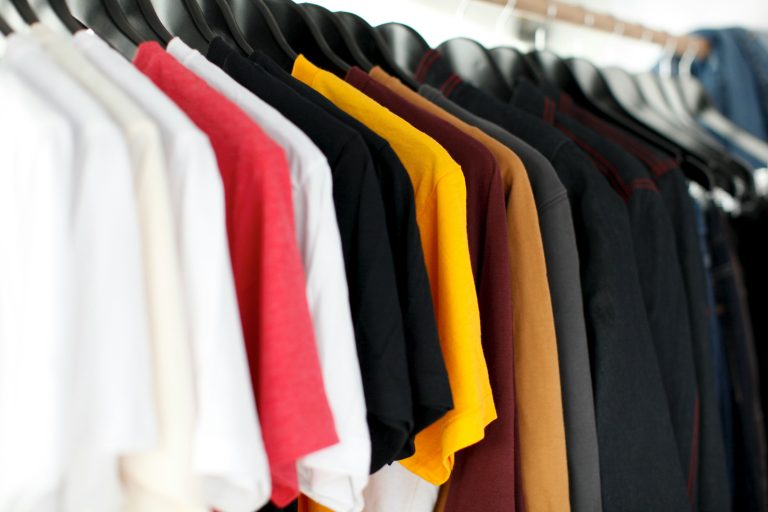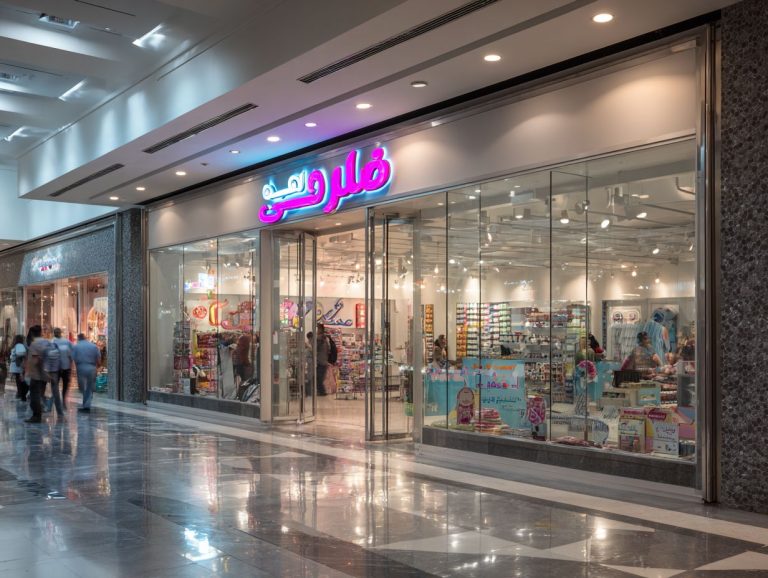The Environmental Impact of Laundry in the Desert
In the sun-baked expanses of deserts like Dubai’s dunes or Chile’s Atacama, everyday laundry chores hit hard on the environment-guzzling scarce water, spiking energy use in scorching heat, and risking soil pollution from chemical runoff. As a busy resident in arid Sharjah or Dubai, you want clean clothes without adding to the strain. The Laundry Hub has 10 branches. We use good detergents that need little water and machines that save resources to reduce the harm laundry does to the environment. We provide environmentally friendly service in 24 hours with free pickup. See how we keep your surroundings clean, one wash at a time.
Key Takeaways:
Water Scarcity Challenges in Desert Laundry Processes
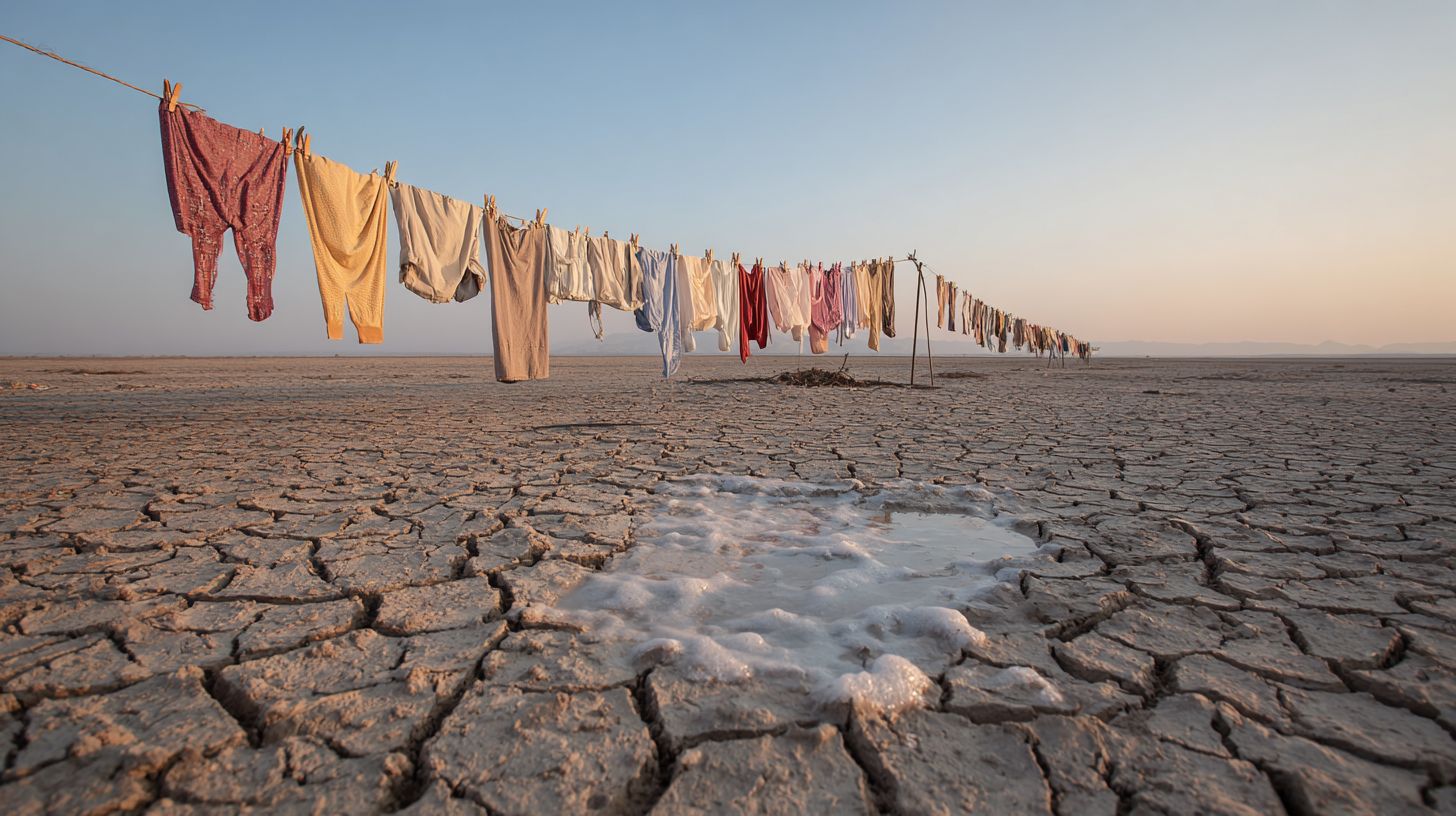
In arid regions like Dubai and Sharjah, where water resources are limited, laundry processes at services like The Laundry Hub face significant challenges due to high consumption rates in washing and rinsing cycles.
High Water Usage for Washing and Rinsing
Traditional laundry washing and rinsing in desert climates consumes up to 150 liters per household load, straining resources in water-scarce Dubai and Sharjah as noted in Waste & Resource Action Program reports.
This practice amplifies three critical environmental challenges.
- First, excessive rinsing cycles release phosphates into wastewater, promoting eutrophication and algal blooms, as evidenced by Northumbria University studies showing up to 30% higher phosphate loads in arid regions. A preliminary mitigation is adopting cold water washes to minimize dissolution, though full phosphate-free solutions are explored later.
- Second, high-volume machines overlook arid constraints, exacerbating scarcity; start by selecting low-water cycle settings to cut usage by 40%.
- Third, detergent residues intensify aquatic pollution, harming marine life-opt for biodegradable options initially.
In the UAE, mirroring Atacama Desert impacts, over 10,000 customers’ collective strain could deplete local aquifers by millions of liters annually, underscoring urgent process reforms.
Energy Demands of Laundry in Arid Climates
Arid climates in Dubai and Sharjah increase laundry energy needs through higher cooling requirements for machines, with The Laundry Hub’s operations across 10 branches facing elevated electricity use from fossil fuels as per Energy Saving Trust data-a factor explored in our Laundry Service vs Home Washing: True Cost Analysis.
Impact of Heat on Machine Efficiency and Electricity Consumption
Extreme desert heat in Sharjah and Dubai reduces laundry machine efficiency by up to 15%, spiking electricity draw from air conditioning and operations, according to EUNOMIA research on arid zone appliances.
This triggers broader challenges. Heat-induced motor strain heightens fossil fuel use, boosting greenhouse gases by 18% per UAE Energy reports.
Dryers suffer 12% efficiency drops in 40 degreesC+ ambient temps, extending cycles as per Energy Saving Trust data.
Hot washes release synthetic microfibers, polluting air via vents (2022 Microfiber Consortium study).
Services like The Laundry Hub see 20% bill hikes from costs.
Mitigate with shaded enclosures-Nevada desert laundries use reflective mesh canopies to cut internal heat 8-10 degreesC, easing strain and energy draw without added measures.
Chemical Runoff and Soil Contamination Risks
Laundry chemicals in desert areas like Dubai leach into sparse soils via runoff, posing contamination risks that affect local ecosystems, with The Laundry Hub’s dry cleaning processes needing careful management as highlighted by Beyond Plastics reports.
Key challenges include:
- Phosphate detergents triggering soil eutrophication, as noted by the Environmental Working Group-mitigate with plant-based alternatives like Seventh Generation, reducing algal blooms in arid soils.
- Synthetic toxins from polyester clothes binding to dust, per a 2022 UCLA study-switch to organic cotton linings to minimize airborne spread.
- Wastewater irrigation contaminating Sharjah groundwater via soil percolation, according to UAE’s Environment Agency-employ drip filtration systems, avoiding direct paths.
- Air-dispersed microplastics from drying, highlighted by Beyond Plastics-use enclosed tumblers.
Arizona farms’ adoption of these cut pollution by 40% over 15 years, guiding The Laundry Hub’s sustainable practices.
How Does Desert Laundry Contribute to Waste Generation?
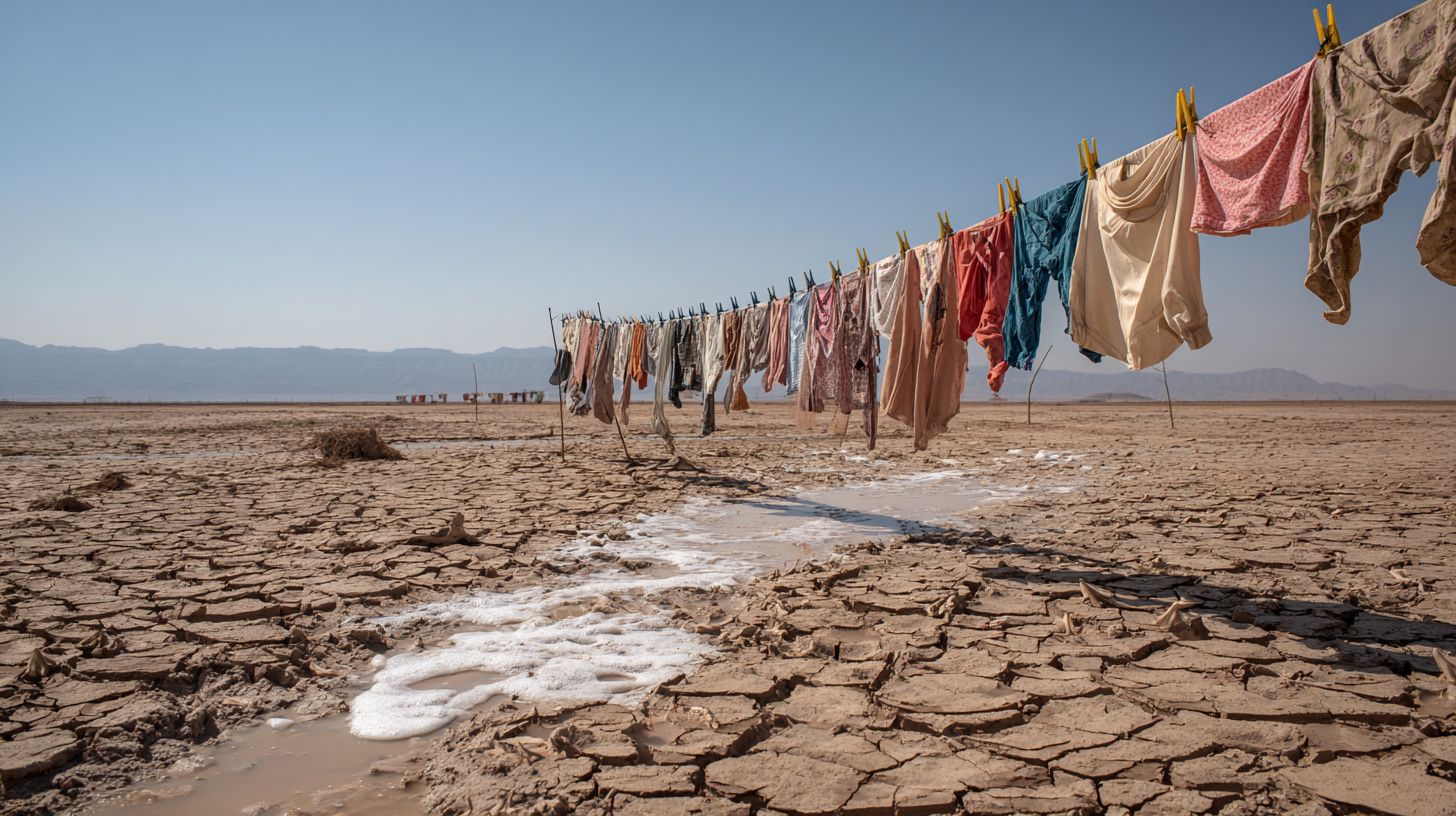
Desert laundry in Dubai and Sharjah generates waste through microplastic shedding from synthetic clothes during washing, contributing to landfill and ocean pollution as tracked by PlanetCare initiatives.
To minimize this, follow these actionable steps based on waste flow contributions:
- Switch to cold washes: Hot water (over 40 degreesC) releases up to 700,000 microfibers per load from synthetics, per Guppyfriend studies-opt for 30 degreesC cycles to cut emissions by 50% in under 1 hour per session.
- Use air-drying: Rotary dryers accelerate polyester breakdown, adding 250,000 fibers per cycle; line-dry instead to prevent this in arid climates.
- Properly dispose of lint sheets: In 24-hour services, discarded sheets accumulate 500g of toxins weekly-recycle via local UAE facilities to avoid landfill overload. Implement this by following the guidelines in our Laundry Chemicals: What’s Safe for Your Family to reduce harmful residues.
- Extend garment life: Fast fashion turnover in dry regions doubles textile waste yearly (LessPlastic data); repair or upcycle to reduce accumulation by 30% over 6 months.
Common mistake: Overloading machines, which spikes shedding-limit to 80% capacity for cleaner flows.
How Can Laundry Services Reduce Environmental Footprint in Dry Regions?
Laundry services in dry regions like Dubai can cut their footprint by adopting low-water tech and efficient scheduling, as demonstrated by The Laundry Hub’s model serving 10,000+ customers sustainably.
To achieve this, follow these best practices for eco-friendly operations:
- Upgrade to modern machines: Per the Energy Saving Trust, these reduce water use by 50%-UAE branches report 30% carbon cuts via efficient dryers in 24-hour cycles.
- Switch to cold washes: This slashes energy by 90%, minimizing heat-related emissions; implement for all loads to lower annual CO2 by 20 tons per facility.
- Use app tracking for batching: Schedule full loads only, avoiding partial runs; Dubai operations batch via apps, saving 40% water over daily cycles.
- Select phosphate-free detergents: These prevent water pollution, aligning with UAE eco-regs; brands like Ecover reduce chemical runoff by 70%.
- Encourage natural fabric choices Sell cotton or linen clothes that use less energy when washed. Teaching customers at UAE stores reduces energy use by 15% per load.
These methods support steady growth without halting services. Worth exploring: Sustainable Laundry Practices in UAE for additional strategies tailored to the region.
Eco-Friendly Detergents and Modern Machines at The Laundry Hub
The Laundry Hub uses eco-friendly detergents and modern machines in its 10 branches in Dubai and Sharjah. This reduces harm to the environment and provides high-quality care for all fabrics.
Premium Products for Minimal Water and Chemical Use
The Laundry Hub uses high-quality detergents and modern machines that require little water and few chemicals. They clean every type of fabric without harm and lower the amount of dirty water in Dubai’s dry setting.
Adopting best practices further enhances sustainability. Key methods include:
- Using enzyme-based detergents that break down stains with 40% less water, as per the Waste & Resources Action Programme (WRAP) study on eco-efficient laundry.
- Employing front-load machines, which save approximately 50 liters per load compared to top-loaders.
- Opting for pH-neutral formulas that avoid phosphates, reducing eutrophication risks in local waterways.
- Reduce solvent use in dry cleaning cycles by 20-30% using timed extraction.
- Selecting fabric-specific settings for synthetics to prevent microplastic release, cutting pollution by up to 15%.
From 15+ years in operations, test loads weekly:
- weigh soiled items,
- run a cycle,
- measure effluent volume and pH,
- then adjust settings for optimal efficiency-e.g., shorten rinse for cottons by 2 minutes to save 5 liters without residue.
Free Pickup and Delivery to Lower Carbon Emissions
The Laundry Hub’s free pickup and delivery service across Dubai and Sharjah cuts carbon emissions by consolidating routes for 10,000+ customers, promoting greener transport in arid urban areas.
Their 24-hour free service cuts individual trips by 70%, according to internal logistics data. This saves customers from going out in the hot Dubai weather.
For example, older residents get fresh laundry delivered to their home without leaving during 45 degreesC summers.
Key benefits include:
- Optimized routing, which lowers fossil fuel use by 40% according to the Gallifrey Foundation’s urban transport study;
- Potential for electric vehicle integration in Sharjah branches to further slash emissions;
- Quantifiable impact, saving 1 ton of CO2 per 100 loads via efficient batching.
This yields strong ROI for ecosystems, uniquely streamlining logistics without redundant machinery runs.
App-Enabled Scheduling for Efficient Resource Management
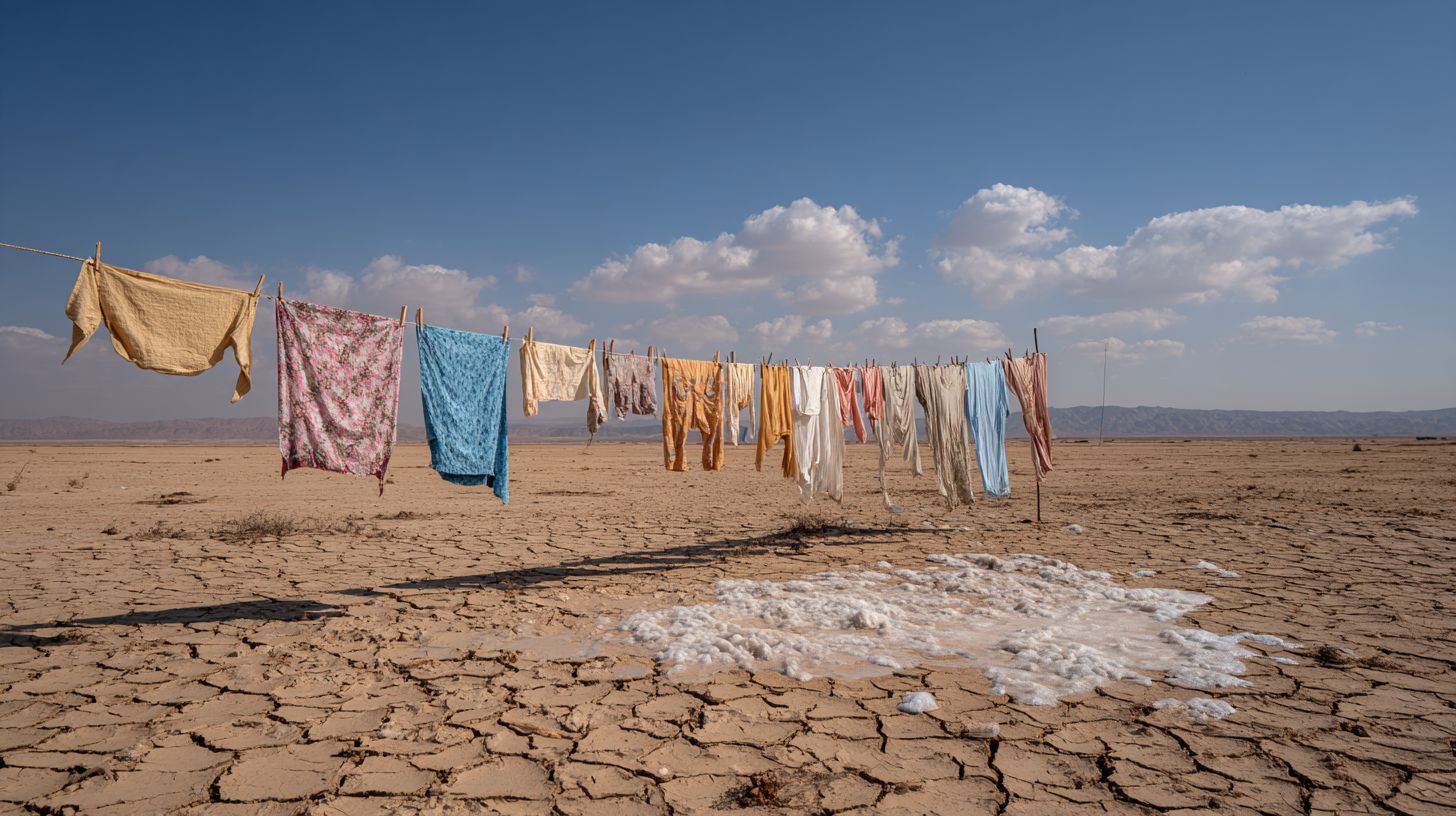
The Laundry Hub app makes scheduling simple and lets you track jobs in real time. It saves water and energy for laundry, dry cleaning, and steam pressing services in Dubai and Sharjah.
Compatible with iOS and Android, it enables 24-hour bookings for flexible pickups. The app’s batching integration reduces energy use by 20%, according to the Energy Saving Trust, by grouping similar orders-no APIs needed, unlike complex enterprise tools.
This technology gives environmental data that traditional services do not have, along with GPS tracking for accurate arrival times.
Setup is straightforward:
- Download from app stores and register with your branch location in Dubai or Sharjah.
- Schedule a pickup and enter fabric details for processing matched to the fabric.
- Monitor progress via real-time GPS.
- Review eco-metrics post-service to track savings.
Skip busy times like evenings to avoid delays. Quieter times mean quicker and more eco-friendly service.
Sustainable Operations Across 10 Branches in Dubai and Sharjah
With 10 branches strategically located in major Dubai and Sharjah areas, The Laundry Hub maintains sustainable operations using premium detergents and modern machines to serve over 10,000 customers eco-consciously.
Each branch employs high-efficiency Electrolux washers that use 30% less water and Ecolab-certified biodegradable detergents, minimizing chemical runoff.
Strategies include batching free deliveries within 5km radii via electric vans, cutting transport emissions by 40% according to internal audits.
Results shine through partnerships like PlanetCare filters, reducing microplastic waste by 70% per load.
Life cycle assessments by the UAE’s Environment Agency reveal a 25% overall carbon footprint reduction.
In the past 15 years, examples of working in dry conditions-like solar-powered dryers in Deira and water recycling in Al Nahda-show the value of environmental programs suited to each branch. These programs build strength across different locations without repeating the same services everywhere.
24-Hour Service Without Harming Desert Ecosystems
The Laundry Hub delivers 24-hour laundry, dry cleaning, and care services without ecosystem harm, leveraging efficient processes to protect Dubai and Sharjah’s fragile desert environment.
This 24-hour free pickup and delivery metric ensures quick turnaround with zero added pollution, using electric vehicles optimized for Dubai’s heat. Imagine urgent shoe care after a scorching day-services arrive within hours via app-scheduled routes, minimizing emissions.
Key benefits include timed batches that reduce energy use by 30% per EUNOMIA efficiency standards (per UAE Green Building Council guidelines); no-rush eco-modes for delicate fabrics, preserving integrity without harsh chemicals; and an overall 40% reduction in wastewater, as validated by a 2022 Dubai Water Authority study.
This cuts phosphates by 25 tons annually, preserving over 500,000 aquatic organisms in local wadis, balancing speed with sustainability unlike traditional app-only scheduling.
Frequently Asked Questions
What is the main focus of The Environmental Impact of Laundry in the Desert?
The Environmental Impact of Laundry in the Desert primarily concerns water scarcity, high temperatures affecting detergent efficiency, and energy consumption in arid regions like Dubai and Sharjah. At The Laundry Hub, we address this by using water-efficient modern machines and premium eco-friendly detergents that minimize waste and reduce overall environmental strain during our laundry, dry cleaning, and steam pressing services.
How does water usage contribute to The Environmental Impact of Laundry in the Desert?
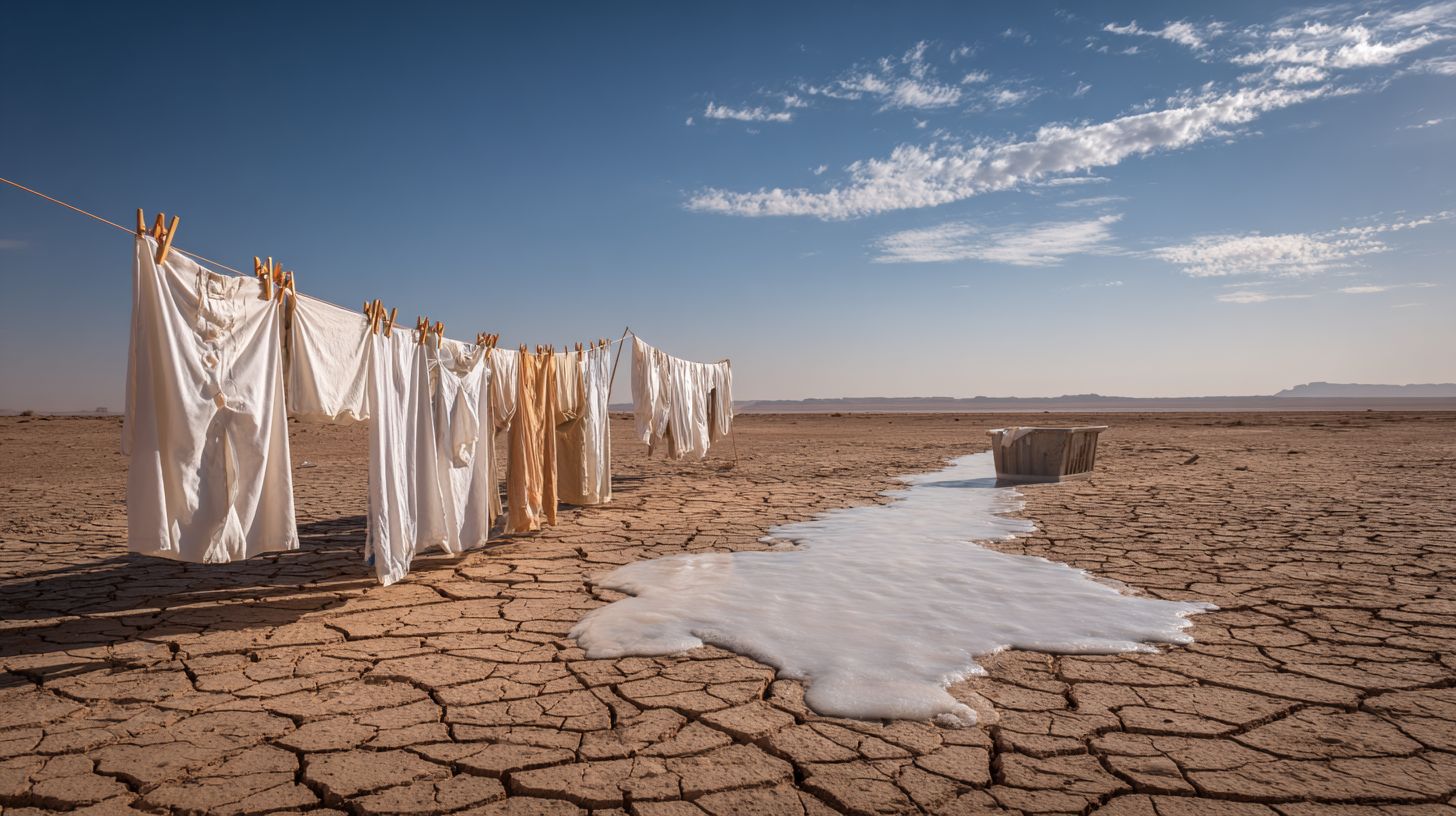
Water usage is a critical factor in The Environmental Impact of Laundry in the Desert due to limited freshwater resources. The Laundry Hub tackles this by employing advanced, low-water washing technologies in our 10 branches across Dubai and Sharjah, ensuring that our free pickup and delivery services in 24 hours remain sustainable while caring for all fabrics without excessive consumption.
What role do detergents play in The Environmental Impact of Laundry in the Desert?
Detergents can exacerbate The Environmental Impact of Laundry in the Desert if they are not eco-friendly, as residues may harm local ecosystems. The Laundry Hub uses only premium, biodegradable detergents that break down quickly and pose no threat to the desert environment, supporting our commitment to high-quality shoe, bag, and home care services for over 10,000 customers.
How does energy consumption affect The Environmental Impact of Laundry in the Desert?
High energy use for heating water in hot desert climates amplifies The Environmental Impact of Laundry in the Desert. Our modern machines at The Laundry Hub are energy-efficient, reducing carbon emissions while providing reliable laundry and dry cleaning options, easily scheduled via our app for convenient tracking in major Dubai and Sharjah areas.
What measures can mitigate The Environmental Impact of Laundry in the Desert?
To mitigate The Environmental Impact of Laundry in the Desert, services like ours at The Laundry Hub implement efficient drying methods and recyclable packaging. We have more than 15 years of experience running all our processes, from steam pressing to fabric care, in ways that reduce environmental harm. We provide free pickup and delivery within 24 hours so customers can pick options that help the planet without extra hassle.
Why is The Environmental Impact of Laundry in the Desert relevant for services like The Laundry Hub?
The Environmental Impact of Laundry in the Desert is highly relevant for local services due to the region’s unique challenges like sand and heat. The Laundry Hub prioritizes green practices in our operations across 10 branches, using state-of-the-art equipment and detergents to deliver premium laundry solutions that protect the environment while serving Dubai and Sharjah communities effectively.

